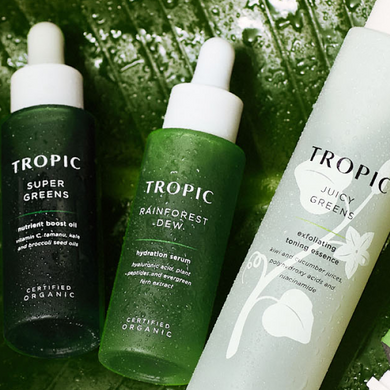Welcome back to another issue of Tropic Takes on Racism. This time, we'll be looking at how 2021 can build upon the conversations that were had in 2020.
2020 - WHAT HAPPENED

Following the murder of George Floyd, protests erupted throughout the UK from the Shetland Islands to Cornwall. Statues were toppled in Bristol, programmes like Little Britain were removed from streaming platforms and black squares were posted on social media in solidarity.
Brits sympathised and were appalled with the stories of racism emerging from the US, and many saw this as the time to stand against the extent of racism and discrimination baked into British society.
While difficult conversations on race were had throughout 2020, with more people than ever before involved in the discussion, in 2021, it's policy change that needs to happen.
WHY 2021 IS THE TIME FOR ACTION
The combination of COVID-19 and Black Lives Matter protests have revealed the cracks in our society.
Many of us back in June may have posted a black square in solidarity, but did this enact actual change?
As Banseka Kayembe, director and founder of Naked Politics, states
'Allyship is a selfless act that is not about instagrammable moments of challenging the status quo. It’s a quiet, consistent form of daily work that seeks no credit or applause from the groups it’s supposed to be helping. It’s about realising that we have far more power working together than just as individuals. Ultimately, a true commitment to anti-racism can’t be about just yourself or reading a couple of books – it’s got to be about the collective power of all of us.'
EDUCATIONAL DISADVANTAGES

We know from previous issues of Tropic Takes on Racism that poorer families are exposed to higher COVID-19 risks. Nearly half of black children and well over half of Pakistani and Bangladeshi children in Britain were living in poverty in 2017.
As of January 2021, the government released guidance that sends children who can’t learn remotely into schools, meaning that hundreds of thousands of UK children without laptops and routers to connect them to are having to go into schools, risking the health of themselves and their families.
Only 560,000 laptops out of the proposed one million have been delivered to households who can't afford their own for remote learning, and even when the remainder are delivered, there will still be a significant shortfall. Ofcom estimates there are 1.7 million children without devices and 880,000 of them live in a home with only a mobile internet connection.
Poorer parents should not have to choose between education and their family’s health. Thanks to collective power, legal action has been taken to challenge this. Four days after legal action was threatened, an extra 300,000 laptops and tablets were bought to help disadvantaged children in England learn at home.
WHY EQUALITY HELPS US ALL

When it comes to health and social issues, people of colour are more likely to be worse off than their white counterparts, and black households face the biggest deficit. As the above graph shows, tackling poverty and class inequalities with policies helps create a more equal society.
If the UK were more equal, we'd all be better off as a population – including the richest people in society. The Equality Trust states that if the UK halved inequality:
- Murder rates could be halved
- Mental illness could be reduced by two thirds
- Obesity could be halved
- Imprisonment could be reduced by 80 per cent
- Teen births could be reduced by 80 per cent
- Levels of trust could increase by 85 per cent
No more lives should be needlessly disadvantaged or lost to understand that a need for long-lasting change and racial equality can't come soon enough – a more equal society works better for everyone!
WHAT ARE TROPIC DOING?
130,000 people have signed a parliamentary petition calling on the government to introduce mandatory ethnicity pay gap reporting.
While the government hasn’t made the ethnicity pay gap report mandatory, we believe words are nothing without action, so we'll be publishing our own pay gap report in 2021, so please look out for this.
TO WATCH
A violent armed mob of Trump supporters stormed the US Capitol in early January in an insurrection over the 2020 presidential election results. The discrepancy in law enforcement in the instance of this event when compared to the Black Lives Matter protests – which took place in the summer of 2020 – couldn't be starker. Watch the video above to compare and contrast.
As Masha Gessen, writer at the New York Times, put it:
'The (Capitol Hill) invaders may be full of contempt for a system that they think doesn’t represent them, but [...] they managed to prove that it does. The system, which shrugged off their violence like it had been a toddler’s tantrum, represents them. It’s the rest of us it’s failing to protect.'
Prejudice is a burden that confuses the past, threatens the future, and renders the present inaccessible. — Maya Angelou
 Skincare
Skincare
 Body Care
Body Care
 Sun Care
Sun Care
 Makeup
Makeup
 Bestsellers
Bestsellers
 Mama & Baby
Mama & Baby
 Men's
Men's
 Haircare
Haircare

